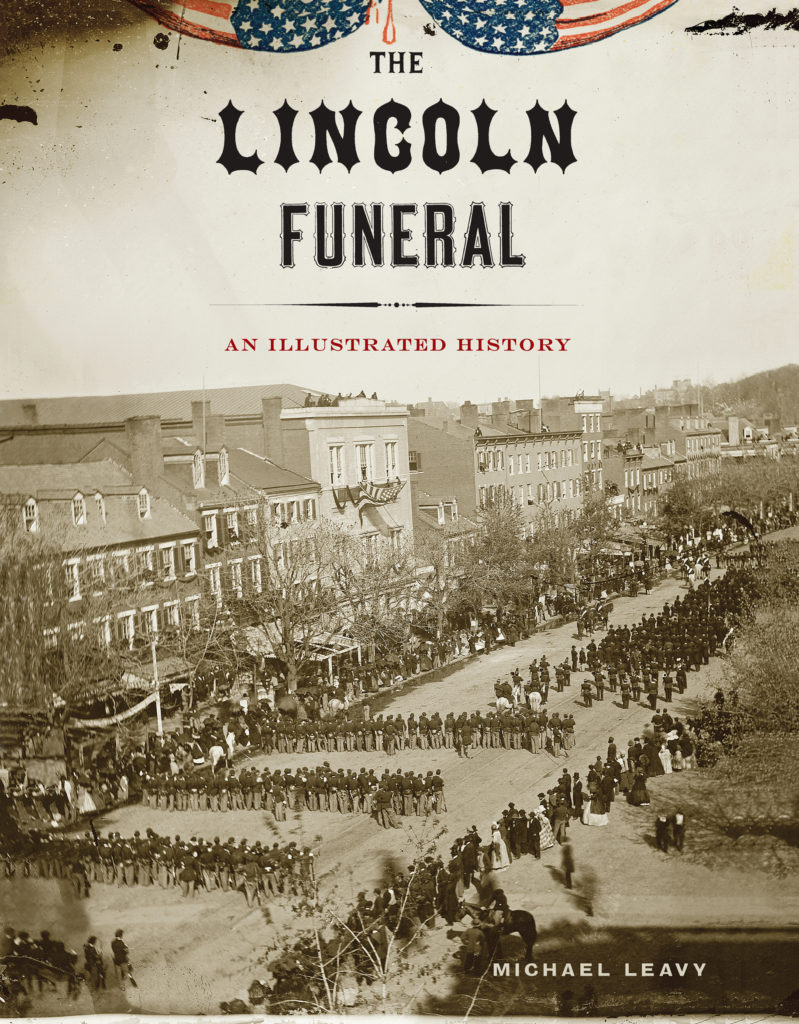

A Moment of Great National Sorrow Captured in Photographs and Drawings
The Civil War burdened the United States economically, politically, morally, and spiritually, as nothing has before or since. The overwhelming cataclysm, which would have wrecked a lesser nation, ended with Robert E. Lee’s surrender of the Army of Northern Virginia at Appomattox on April 9, 1865. Just as the weary citizens on both sides let themselves contemplate peacetime pursuits came one final blow. On April 14, a Marylander and outlandish white supremacist assassinated President Abraham Lincoln. Horrified northerners had vengeful thoughts. But vengeance would have to wait. The martyred president, contrary to the wishes of his devastated wife and family, would need an appropriate send-off, a funeral to rival that of an emperor. It would be the first American national funeral and possibly the most spectacular of all.
In The Lincoln Funeral: An Illustrated History, artist and historian Michael Leavy presents this solemn, regal, and romantic event in contemporary photographs and drawings, some rarely reproduced. What emerges is a marvel of rapidly formed committees, highly polished trains, and clicking telegraph keys. Cities and towns went into a frenzy to out-do each other in honoring the fallen president. Trains and telegraphs drove the event, producing a near national hysteria that resulted in police having to restrain enormous crowds across the Northeast and Midwest. But this collection of illustrations demonstrates that the Lincoln funeral was not wholly about pageantry. The slow railroad procession and attending ceremonies to Illinois were a collective expression of intractable grief. People wanted somehow to keep “Old Abe” alive—the man who only a month earlier had been despised by as many as revered him. With his death the entire country understood how much he meant to the nation.

Michael Leavy is a professional artist specializing in mural painting. A leading expert in railroad history, he is author of nine books on the subject, including Railroads of the Civil War: An Illustrated History.